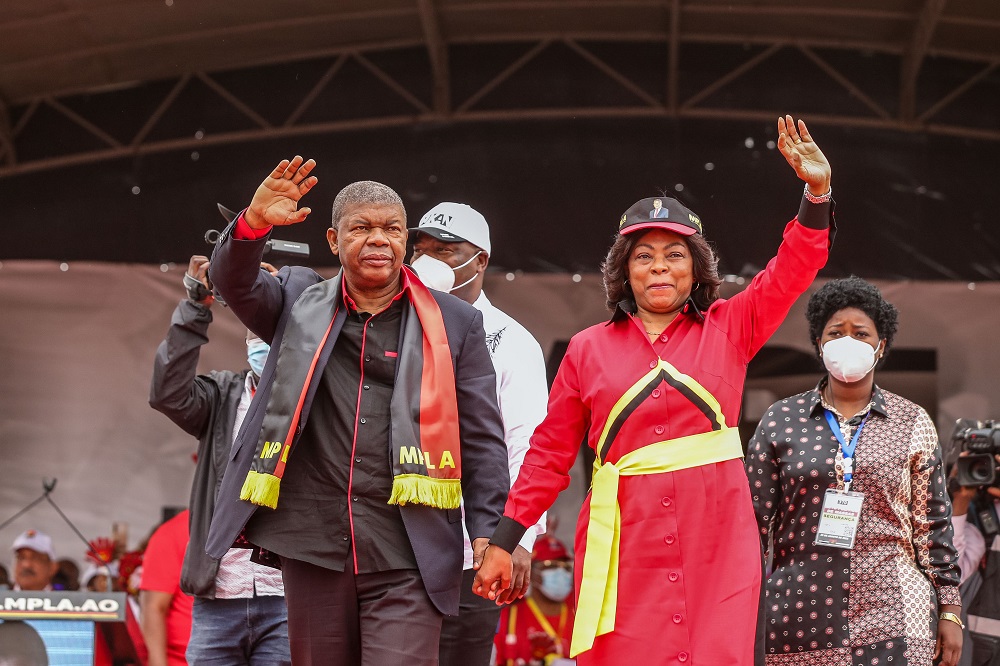As Angolans head to the polls on August 24 for parliamentary elections,. IPI calls on authorities to uphold press freedom and allow journalists to do their work without hindrance or fear of reprisal. At least 12 journalists have been assaulted over the past seven months, with several others dragged before court because of their work.
On August 24, for just the fifth time since independence in 1975, citizens of Angola will head to polling stations in parliamentary elections, in which the candidate of the winning will also be elected president. The country’s civil and political landscape is widely considered as not free. The political arena has been dominated by the People’s Movement for the Liberation of Angola (MLPA) party since independence, with José Eduardo dos Santos serving as president from 1979 to 2017. His successor, President João Manuel Gonçalves Lourenço, is seeking reelection. The election is expected to be close, with the presidential candidate of the opposition UNITA ahead in polls.
Despite some progress in terms of civil and political freedoms, authorities continue to stifle many fundamental liberties, including press freedom. This year, several journalists have faced repression by security forces or political sympathizers in response to their work.
Recent attacks on the press
On August 17, 2022, security forces arrested and detained journalist Coque Mukuta, a correspondent for Voice of America, while covering a protest staged by civil society organizations against the electoral process in Luanda, the capital city of Angola. The police later released him without any charges. In a statement, the secretary-general of the Union of Angolan Journalists (SJA), Teixeira Cândido, condemned his arrest and detention, while the police said that it was a mistake.
In another incident, on July 1, at least six journalists were assaulted by MPLA sympathizers in the Luanda municipality of Viana. Among the victims were journalists Isabel Makito of TV Maiombe, Antonio Sapalo from the online platform Correio, and Kapita Inga of TV Nzinge. According to reports, the journalists were assaulted when they were covering a dispute over the space for the conduct of election-related activity. In a different incident, on January 10, 2022, six other journalists working for two privately owned media, TV Zimbo and TV Palanca, were assaulted by angry protestors.
On April 13, 2022, security forces seized the work equipment of Daniel Fernandes and Romão De Jesus, two journalists working with Radio Despertar and Romão de Jesus, respectively. As a result, the journalists were prevented from reporting on homeless families following the demolition of houses for the construction of a new airport in the neighborhood of Santa Paciência in Viana municipality.
Uneven improvements
Observers say that while freedom of expression has improved in nuanced ways in the country – especially online, due to increased social media usage amid greater internet penetration – press freedom remains restricted. Recent attacks and legal harassment have served to underscore the significant challenges.
“Contrary to the improvement of freedom of expression online, press freedom has deteriorated further in the country”, said Raphael Marques, a noted Angolan journalist and the recipient of the 2018 IPI-IMS World Press Freedom Hero Award. “Authorities must protect journalists and guarantee press freedom at all times”, Marques told IPI ahead of the election.
In addition to physical attacks, journalists in Angola continue to face legal harassment. In June, three journalists – Escrivão José from Hora H, Oscar Constantino from Rádio Ecclésia, and Fernando Caetano – were dragged to court in criminal insult and defamation cases. Constantino was recently acquitted due to a lack of sufficient evidence, MISA Angola, a press freedom NGO, told IPI.
In all three of these cases, two influential public figures, MPLA official Bento Bento and Morais António, a former president of a provincial electoral commission, were behind the legal harassment.
Authorities must protect journalist safety
Free access to information and media is a central tenet of democratic elections. Public demand for information also increases as voting day approaches and during the time afterward. As journalists seek to provide the public with news on the elections, they face a higher risk of pressure and attacks.
‘’Journalists play a vital role around election-related activities and particularly on voting day and in the post-election period”, said IPI Director of Advocacy Amy Brouillette. “IPI calls on Angolan authorities to ensure that journalists are able to do their work safely, freely, and independently.”
She added: “The overall environment for press freedom and independent journalism in Angola remains highly restricted. The next government must prioritize improving conditions for journalists and implementing reforms to protect press freedom as a fundamental right and a pillar of democratic society.”
